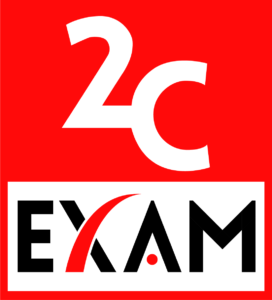Isn’t every company that sells insurance policies called an insurance company?
Insurance companies refer to companies that will launch their own new products (insurance plans). These companies usually have a larger scale. They will arrange everything from product development, front-line sales, underwriting, claims, complaints, and actuarial calculations. To ensure compliance with the requirements of insurance industry regulations and ethical standards. These companies will arrange their own staff to sell insurance policies, and will also cooperate with some insurance brokers to outsource the sales work to them. Common insurance companies include: Manulife, Prudential, China Life, AIA, etc.
An insurance company can also be called an “Insurer”, because the insurance company is the one who provides protection behind all the insurance policies on the market. If you need to make a claim, the one who pays is the insurance company. The person who purchases the policy is the “Policy Holder”. In the insurance industry, the word “person” does not necessarily mean a natural person with flesh and blood and human organs. “Person” can represent both a company and a natural person. Therefore, “insurer” and “Policy Holder” are not necessarily natural persons.
What is an insurance agent?
As mentioned earlier, insurance companies will also sell their own insurance products. Insurance agents will be categorized into independent agents or hired agents. In many cases, insurance companies will “appoint” some “Insurance Agents” to sell insurance policies. Speaking of entrustment, in fact, these insurance agents are not the “employees” of the insurance company, and the relationship between the two is a cooperative relationship, and the agents are self-employed to complete the sales tasks for the insurance company, therefore the the saying “employed” insurance agents that is commonly said in the market is not necessarily accurate. Insurance agents can also refer to an agency company or an agent that is a natural person.
Insurance agents represent the insurance company to open up the source of customers, provide the company with services such as selling insurance products and answering claims issues for customers. It mainly represents the interests of insurance companies, not the interests of policyholders. Insurance agents generally only sign cooperation agreements with one or several insurance companies. If the agent only cooperates with one insurance company, the two contracts will specify that the agent can only sell the products of that particular insurance company. Insurance agents mainly sell long-term insurance such as life insurance and critical illness insurance, so they can get more support from insurance companies.
Insurance broker? Is it a role like a star manager?
Insurance brokers and star managers have completely different meanings and roles. As mentioned above, the term Insurance Brokers can refer to companies or individuals. Insurance brokers are companies that sell other people’s insurance products. Usually, a brokerage firm will cooperate with more than one insurance company. The broker can provide products from multiple insurance companies for customers to choose from. After the insurance policy is sold, the insurance company will share the profits with the insurance broker company. Common insurance brokerage companies include: Convoy, Everbright Sun Hung Kai, AMTD, etc.
The insurance broker selects suitable insurance products on behalf of the client. The word “ insurance broker” can refer to an individual or a company. It is completely independent in identity and does not represent any insurance company. General insurance uses brokers to contact customers, such as car insurance, marine insurance, and fire insurance, which mainly represent the interests of policyholders rather than the interests of insurance companies. Insurance brokers have cooperative relationships with multiple insurance companies. For a broker, the more insurance company products they can sell the better. They do not have exclusive sales agreements with insurance companies. Therefore, insurance brokers have an advantage in product diversity and can objectively provide customers with products from multiple companies for purchase.
What does insurance intermediaries mean?
Insurance intermediaries generally refer to insurance agents (individuals) and insurance brokers (individuals), because these two types of persons only promote insurance company products to customers, and do not directly contract with customers or provide insurance compensation.
Where can you buy insurance?
As long as you are able to find an insurance intermediary who is willing to thoroughly explain the products they are selling (agents, brokers, or insurance salespersons in banks are also included in this instance), you will be able to buy an insurance plan that suits your needs with a peace of mind. You can ask friends if they have any recommended insurance intermediaries, if not, you can try to take initiative and do some searching on the web.


How can we help?
2CExam provides HKSI LE, IIQE, EAQE and SQE related exam preparation materials. We sell mock question banks for IIQE Papers 1, 2, 3, 5 and MPFE in Chinese and English; and bibles for IIQE Papers 1, 2, 3, MPFE in Chinese. We also offer 1 on 1 tutorial services. Besides, we have also made free tutorial videos for IIQE Papers 1, 2, 3 and MPFE and posted on public channels such as Youtube/ Bilibili/ Tencent/ Iqiyi. 2CExam has been an exam training expert for years. Should you need any help please visit www.2cexam.com or contact us through:
Phone +852 2110 9644 Email: [email protected] Wechat: hk2cexam WhatsApp: +852 9347 2064
Please support us by leaving comments and likes if you think this article helps you!
You can scan or click on the QR codes to visit our social media.
Latest Article
Categories
過往文章
Contact US
-
Phone:
+852 2110 9644
-
Email:
-
WhatsApp
+852 9347 2064
-
WeChat
hk2cexam
- « Previous
- 1
- …
- 15
- 16
- 17
Interesting Articles
Which license is required for bank employees engaged in securities business?
Should Hong Kong bank employees apply for an HKMA license or an SFC license? According to the licensing requirements for real estate practitioners, passing relevant qualification exams is a necessary condition for obtaining a real estate agent (individual) license or a salesperson license. The Hong Kong Securities and Futures Practitioners Qualification Exam (HKSI LE) is…
What is the difference between an SFC license and HKMA registration in Hong Kong?
What is the difference between an SFC license and HKMA registration in Hong Kong? In Hong Kong, the statutory organization responsible for regulating the securities and futures markets is the Securities and Futures Commission (SFC). The Securities and Futures Ordinance, which came into effect on April 1, 2003, grants the SFC regulatory authority over the…
What is an HKSI certificate?
What is an HKSI certificate? What is the use of an HKSI exam transcript? What is an HKSI certificate? Do I need an HKSI exam transcript or an HKSI certificate when applying for SFC registration? To work in the securities industry in Hong Kong, passing the Hong Kong Securities and Futures Commission (SFC) Licensing Exam…
How to obtain an exemption for the HKSI LE Securities and Futures Practitioners Qualification Examination?
How to obtain an exemption for the HKSI LE Securities and Futures Practitioners Qualification Examination? In the previous issue, we talked about how if someone wants to work in the securities industry in Hong Kong, they must first pass the Hong Kong Securities and Investment Institute’s (HKSI) Licensing Examination for Securities and Futures Intermediaries. Are…
Where can I register for securities exams in Hong Kong?
Where can I register for securities exams in Hong Kong? If you want to work in the securities industry in Hong Kong, you must pass the Securities and Futures Commission (SFC) Licensing Exam LE. The organization that conducts the Licensing Exam LE in Hong Kong is the Hong Kong Securities and Investment Institute (HKSI). The Hong…
Often hear the beautiful ladies and handsome gentlemen in the Hong Kong financial sector talking about the “178 license” they need to obtain. What exactly is it?
What is the Hong Kong 178 license? In fact, the 178 license is not a real license but refers to a combination of examination papers that need to be taken. It consists of the Hong Kong Securities and Futures Practitioners Qualification Examination Paper 1, Paper 7, and Paper 8. In Hong Kong, activities related to…
What is the SFC license in Hong Kong?
What is the SFC license in Hong Kong? The Securities and Futures Commission (SFC) of Hong Kong was established in 1989 as an independent statutory body responsible for regulating the securities and futures markets in Hong Kong. The Securities and Futures Ordinance and its subsidiary legislation grant the SFC the power to investigate, correct, and…
Why do people still buy materials from 2CExam while HKSI provides free study notes?
In addition to organizing LE exams, the HKSI will also provide students who take the LE exam with the exam coverage called the Study Note. It depicts what is covered in the exam with hundreds of pages and full of paragraphs. It is lengthy and contains a lot of data and examples that will not…
EAQE/ SQE Real Estate Agency Exam Coverage/ Scope for Revision
Many students are clueless about the exam coverage / scope for doing revision on the Estate Agent Qualifying Examination (EAQE) and Salesperson Qualifying Examination (SQE). VTC’s PEAK does not have any notes available for candidates to download. In fact, the scope of the exam is quite extensive. Some of the coverage can be downloaded from…
Is success an Unattainable Ideal in the Real Estate Industry? 10 Benefits of Being in the Real Estate Industry Can Stimulate Your Capacity
Is it difficult to succeed in the real estate industry? Living space is one of the indispensable elements in life. From the wealthy speculating and selling flats to ordinary people looking for a place to live, most Hong Kong people have the demand to rent or even invest in the real estate market. Hong Kong’s…








